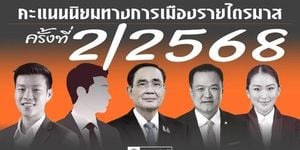As Prime Minister Narendra Modi prepares to attend the G7 summit in Kananaskis, Alberta, from June 15 to 17, 2025, tensions are mounting over planned protests by pro-Khalistani groups. Leading these efforts is Sikhs For Justice (SFJ), a banned organization known for advocating the creation of Khalistan, a separatist Sikh state. The group has publicly vowed to disrupt Modi’s visit, setting the stage for a politically charged confrontation on Canadian soil.
Gurpatwant Singh Pannun, SFJ’s general counsel, did not hold back in a recent video message, accusing Modi of spreading transnational terrorism from Pakistan to Canada. “We thank Canadian Prime Minister Mark Carney for providing pro-Khalistan Sikhs the opportunity to challenge Modi’s politics in front of G7 leaders,” Pannun said, highlighting the group’s intent to use the summit as a platform to press their grievances.
Central to SFJ’s campaign is the demand for accountability over the killing of Hardeep Singh Nijjar, a Khalistani separatist shot dead in Canada in June 2024. Pannun alleges that the Indian government orchestrated assassination plots abroad targeting Khalistan referendum organizers, describing these as “murder-for-hire” schemes. The group also condemned India’s anti-terror Operation Sindoor, which was launched in response to the April 22 Pahalgam terrorist attack that killed 26 Hindu civilians. Pannun labeled this operation a terror attack against Pakistan’s religious sites, further inflaming tensions between the nations.
The Sikh Federation Canada has echoed these concerns, urging the Canadian government to withdraw Modi’s G7 invitation unless India cooperates fully with investigations into Nijjar’s murder and other alleged transnational conspiracies. The Federation has called for targeted sanctions against senior Indian officials, including Home Minister Amit Shah, and demands that Canada publicly hold India accountable for what it describes as interference and violence on Canadian soil.
Adding another layer of controversy, investigative journalist Mocha Bezirgan has reported that Khalistani groups plan to pay tribute during the summit to figures they consider martyrs. These include Beant Singh and Satwant Singh, the assassins of former Indian Prime Minister Indira Gandhi, as well as Bibi Satnam Kaur and Bibi Waheguru Kaur, reportedly used as suicide bombers against Indian Army tanks. Such glorification of violent acts has alarmed many observers and further strained diplomatic relations.
Bezirgan himself has been at the center of recent confrontations. During a rally in Vancouver organized by SFJ, he alleges he was physically assaulted and threatened by Khalistani supporters while reporting on the event. The rally openly glorified the assassins of Indira Gandhi and featured extremist rhetoric advocating for the “killing of the politics” of Narendra Modi ahead of the G7 summit. Bezirgan described how he was surrounded by a group of supporters who behaved like “thugs,” physically intimidated him, snatched his phone, and issued threats against his independent journalism.
He identified the main aggressor as a UK national with a history of online harassment who continues to follow him despite police intervention. Bezirgan expressed frustration that this individual has not faced serious consequences, stating, “He should be deported back to the UK.” Local police responded promptly to the incident, instructing the accused to back off, but the ongoing threat remains a concern.
Bezirgan highlighted that the rally was supported by local Gurudwaras and politically backed by organizations such as the Canada-based World Sikh Organization. He warned that these gatherings not only glorify the killers of Indira Gandhi but also promote dangerous rhetoric against Indian democracy. The portrayal of Bibi Satnam Kaur and Bibi Waheguru Kaur as martyrs, he said, is a disturbing celebration of violence masquerading as political activism.
These developments come amid heightened diplomatic tensions between Canada and India, especially after former Canadian Prime Minister Justin Trudeau accused Indian agents of involvement in Nijjar’s murder—a charge India has repeatedly dismissed as baseless. Despite the gravity of these allegations and the planned protests, the newly elected Canadian government has yet to issue any official statement addressing the demonstrations or calls to revoke Modi’s invitation.
The situation underscores a complex and volatile mix of international diplomacy, domestic politics, and extremist activism. The upcoming G7 summit in Alberta is poised to be more than just a gathering of world leaders; it may become a flashpoint for unresolved grievances and geopolitical friction.
As Modi arrives in Canada, he will face not only the formal agenda of the summit but also the charged atmosphere created by these protests and the broader geopolitical context. The Canadian government is caught in a delicate balancing act, managing its alliance with India while addressing domestic concerns over extremism and the rule of law.
Observers note that the issue of Khalistani separatism has long been a sensitive and divisive topic within Canada’s sizable Sikh community. The planned protests and the violent rhetoric surrounding them highlight the persistence of these divisions and the challenges they pose for Canadian multiculturalism and security.
Meanwhile, investigative voices like Bezirgan’s call attention to the underground networks fostering radical ideologies in North America. He cautions against ignoring the political sensitivity of the issue, emphasizing that “we are ignoring what’s happening underground. These people openly identify as descendants of Indira Gandhi’s assassins and advocate ambushing Indian democracy.”
With the G7 summit just days away, all eyes will be on Kananaskis, where the world’s most powerful leaders will convene amid protests and political drama. How Canada manages this delicate situation could have lasting implications for its relations with India and its own internal cohesion.
Whatever unfolds, the events surrounding Modi’s visit highlight the complex interplay of international diplomacy, diaspora politics, and the enduring scars of historical conflicts. The summit will test not only the leaders’ ability to address global challenges but also their capacity to navigate deeply entrenched political fault lines.




